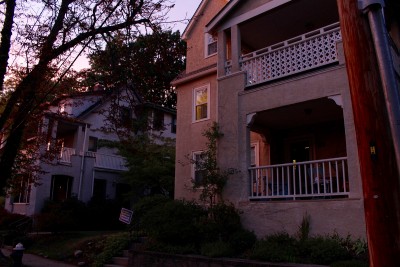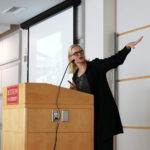
Boston will begin considering bids from developers for $14 million in funding for an affordable housing project, Boston Mayor Martin Walsh announced in a Thursday press release.
The funding is part of the city’s Housing a Changing City: Boston 2030 initiative, which aims to build 6,500 new affordable housing units for various groups and income levels by 2030, the release stated.
“We must keep Boston equitable and affordable for all of our residents,” Walsh said in the release. “The funding will help us continue to build a pipeline of affordable housing, giving us the ability to reach the ambitious goals laid out in our housing plans.”
The city will select two requests for proposals, valued at $7 million each, that follow a list of priorities set by the Department of Neighborhood Development, the release stated.
Important priorities mentioned in the DND press release are “supporting renters and homeowners with advice and assistance,” guiding small business and ensuring development of unused land for the community’s good.
DND Director of Operations Devin Quirk said successful bids should include strategies to support affordable living in all neighborhoods of Boston.
“We’re looking for developers with a track record of successfully producing affordable housing for low and moderate income individuals that are high quality,” Quirk said.
Among the funds’ sources is the Neighborhood Housing Trust Fund, in which commercial properties developers will contribute $7 million, the release stated. Other sources include the Inclusionary Development Fund, in which developers of more than 10 property units contribute cash in lieu of building affordable units, and several federal funds.
“City funds are used as ‘gap’ funds, where developers of affordable projects are able to demonstrate the need for City funding,” the release stated. “When using City funds, developers are required to follow specific guidelines, including following streamlined design standards, energy efficient standards, and adhering to specific income limits for prospective renters or homeowners.”
Eric Shupin, a policy associate at Citizens’ Housing and Planning Association, said the group supports Walsh’s $14 million funding plan, as it includes “vulnerable population,” which includes low income households, persons with disabilities, seniors and veterans.
“In CHAPA, we really support any increased investment in creating additional opportunities for Boston residents to buy homes that they can afford,” Shupin said. “This award announcement will certainly help make progress toward [Housing in a Changing City: Boston 2030] in meeting the needs of our city and creating a growing and vibrant Boston.”
Boston residents said they also support the mayor’s funding initiative, hoping it will decrease housing costs in the city.
Though he supports the $14 million program, Troy Simpson, 46, said the city’s housing sector still needs improvement.
“I live in Roxbury, which is being housed out. The prices are going up; it’s very hard for some people to live there,” he said. “I’ve seen private housing for students need[s] some improvement — painting and stuff like that.”
Mary Commisso, 22, of Brighton, said the funding would benefit the city if it is implemented correctly.
“It’s pretty hard to afford unless you’re a student and your parents are paying for you, or you make over $100,000 a year, which is obscene,” she said. “I’m a little skeptical that it’s going to get implemented in the way that people hope. As long as it helps some people, it’s probably going to be good.”
Meghan Cashman, 36, of Brighton, said the funding initiative is a beneficial initiative and Boston should put in efforts to enhance certain neighborhoods’ aesthetics.
“I’m all for affordable housing,” she said. “I love living in Boston. I would like it if it would not just go up anymore and stay the same.”
Lavanya Prabhakar contributed to the reporting of this article.




